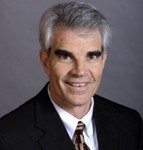
by Steven Waechter | Aug 7, 2012
 Our esteemed Senator Harkin has been holding some hearings on for-profit colleges back in D.C., and now he has penned an editorial for the Des Moines Register. In full disclosure, I dislike Tom Harkin. Intensely. Then again, back in 2008, Charles Grassley voted for the TARP bailout, and now I don’t like him either.
Our esteemed Senator Harkin has been holding some hearings on for-profit colleges back in D.C., and now he has penned an editorial for the Des Moines Register. In full disclosure, I dislike Tom Harkin. Intensely. Then again, back in 2008, Charles Grassley voted for the TARP bailout, and now I don’t like him either.
But, back to the junior Senator from Iowa; Senator Harkin penned an opinion-editorial decrying the high tuition, poor student outcome, and massive debt of the students of for-profit colleges. If somebody would be so kind as to pass this on to the right honorable gentleman, would Senator Harkin please explain why his criticisms of the for-profit colleges are not extended to all colleges? Why does the servant of the people limit his criticism to the obvious failures of the for-profit schools, and not touch upon the failures, just as obvious, of the Ivy League, non-profit schools, endowment liberal arts colleges, and even state schools?
I have three reasons which instantly spring to mind. First of all, Mrs. Harkin sits on Iowa’s Board of Regents. I don’t think Senator Harkin mentioned that; being a bachelor myself I’m only assuming that it would be appropriate to disclose that information.
Second, college professors and administrators appear to have privileged status in modern American society, and being part of the Nomenklatura (Russian for “Book of Names,†these were people who had earned favors from the members of the Communist Politburo), colleges can’t possibly be permitted to suffer the effects of a recession. After all, if your waitress doesn’t have a degree in sociology, how can we possibly have justice and compassion in our society?
Thirdly, and I think probably the most important, higher education is critical for the current political climate. We are in a deep economic depression and college is a useful way to keep young people busy. It gets them out of their parents’ houses, gives older voters the illusion that the young will be able to support themselves and fund the welfare state, and gives elected officials a ready-made line for why they need to be returned to office and why the public needs to turn over their wealth to the state -because children are the future, and we need to invest in our young people.
Political careerists have used that stupid old trope for decades now. We must, they tell us, rack up enormous debts – as a nation and as individuals – for the sake of the children, who will then grow up as serfs and endure an intense curtailment of their liberty and prosperity to settle the debts that we racked up for the sake of the children. It’s a bit like selling your car for gas money.
So, hurry up and enroll your kids in a state school, and make sure to cosign the Federal Stafford Loan promissory notes. Of course, you need to make sure you reelect your local deputies of the Supreme Soviet to make sure your kids can still get the chance to sign those promissory notes. Our economy, after all, is built on an Education-Employment model, where young people go to college so they can become more attractive to employers – employers who no longer have access to the capital they need to expand their businesses; considering that is where new jobs come from, that might be a bit of a problem – so unless your kids borrow money from the government to get an advanced degree, they might not get that job that doesn’t exist.
More than fifty percent of recent college graduates cannot find full time employment. All of them could get funding for a master’s degree if they really wanted it, though. It doesn’t mean anybody will have the capital to invest in employing them two or three years from now, but it will keep them busy and not officially part of the “unemployed.â€
So, there you have it; as long as federal money is being funneled to state schools to cover exorbitant tuition for degrees not worth the paper on which they are printed, our dear Senator doesn’t seem to mind. I actually agree with Senator Harkin when he condemns the for-profit colleges; but he attacks them for being for-profit, not for being useless. I attack them for being useless – the same sin committed by most every college and university in the country, regardless of who runs them.
No career politician has the courage to take on the real problems facing the American economy, so perhaps Senator Harkin doesn’t warrant extra criticism for his cherry picking and selective righteousness – he certainly doesn’t deserve any credit, either.

by | Jul 24, 2012
 While much of the attention and focus when we head out to vote in November will be on the various partisan political races on the ballot, residents of Polk County will have another very important decision to make–who will be guiding the law enforcement efforts that protect us.
While much of the attention and focus when we head out to vote in November will be on the various partisan political races on the ballot, residents of Polk County will have another very important decision to make–who will be guiding the law enforcement efforts that protect us.
Though it may surprise many, the reason this is important is that some very basic laws on the books are being relegated to the back burner by current Sheriff Bill McCarthy–who has instead decided that the crack down we need is on those breaking the speed limit. While many living in the suburbs are unaware, not all places in Polk County are as safe as the neighborhoods most of us live in. The emphasis and aggressiveness in enforcing current law is vital to improving our safety, protecting our rights, and stamping out problems before they become out of control and directly threatening.
Opposing Sheriff McCarthy this November is Dan Charleston. I would encourage all of you to take a minute and visit his website – Charlestonforsheriff.com – where he goes into detail on the many hot-button issues that are on the table and how he would approach his law enforcement duties in general.
He was kind enough recently to answer some questions for The Conservative Reader: Iowa–mainly focusing on the impact a new Polk County Sheriff could have if he is elected in November. Here is what he had to say:
Should you defeat Bill McCarthy in November, what are the top three things that the citizens of Polk County would notice a change in?
Honoring the Oath of Office and ensuring the protection of individual rights as laid out in the US Constitution and Bill of Rights, will be the first priority when elected Sheriff. We will lead together with innovative ideas and solutions to better serve our community. This will restore faith, hope, and the belief that there is a better future for our families and our right to life, liberty and the pursuit of happiness.
The Polk County Sheriff’s annual budget is over sixty million dollars. The 2011-2012 budgets will bring a mandatory cut of more than 2.5million dollars. There are many ways to accomplish this: retirements, reallocation of top management positions to line staff, inmate food service, fewer take-home cars for positions which do not require one, alternative work schedules, and management to staff ratios brought within the national average. This does not require the loss of staff jobs or a consulting firm’s opinion at taxpayers’ expense.
Recently the Sheriff and board of supervisors voted to allow speed cameras placed in vehicles throughout Polk County. I believe this is unconstitutional based on the sixth amendment. I would not allow the use of speed/red light cameras in Polk County and would lead the effort in getting them removed throughout the entire county.
What would your top priorities be on day one, and how would you best describe your managerial and law enforcement philosophy?
I believe the top priority at the Polk County Sheriff’s Office is to restore the morale of the staff. There is a lack of faith in the leadership which affects the work ethic and overall attitude of the employees.
I believe in maintaining service before self; doing more with less; providing fiscal transparency, common sense solutions, honesty, accountability, trustworthiness, respect, loyalty, and fairness. I also believe in community and an attitude of service shown to the people whom we serve as law enforcement professionals in Polk County.
I believe a law enforcement organization cannot expect to grow and prosper if the skills of its people do not consistently do so. I believe in leading by example through realistic training, innovative ideas, on-going law enforcement education and common sense solutions when issues arise.
I believe that when we promote great leaders, it affects the work ethic, self- worth and pride of our organization, which will then be apparent to the people we serve. I believe Integrity is the most important thing a man or organization can possess, and with it, pride and a humble spirit is shown.
How has the campaign been going? Was there one event or occurrence that drove you to run for this office? Name one impact that a high quality County Sheriff can have on a community that might surprise some people?
The campaign has been going outstanding. The volunteers, radio, TV, webcasts, house parties, public speaking and parades have been very rewarding and informative.
Having been in the military and worked for Los Angeles Sheriff’s Department, I have been a part of first class organizations. Having this experience gives me better vision to see where Polk County needs improvement in its law enforcement practices. Through proactive law enforcement, we can reduce gang activity, drug trafficking, illegal immigration, and unconstitutional speed cameras and lead the way for constitutional carry in this great state of Iowa.

by | Jul 22, 2012
 While every Republican in Iowa has been wishing that Randi Shannon would withdraw from public view just quickly as she withdrew from the ballot 10 days ago–it appears this will not be the case.
While every Republican in Iowa has been wishing that Randi Shannon would withdraw from public view just quickly as she withdrew from the ballot 10 days ago–it appears this will not be the case.
Instead of going away quietly she has chosen to, of all things, go on a publicity tour to promote her appointment as “Senator” in a new government called “The Republic of the United States of America“. On July 13th she released a truly unbelievable letter detailing why she was dropping out of the Iowa Senate race to represent District 34 and joining this new alternative “union”.
The discussion she had with Ed Fallon recently is below (via The Bleeding Heartland), for an entertaining and jaw-dropping 15 minutes of video fast forward to the 10 minute mark and watch till around the 25 minute mark. This is one of the few times I have felt truly sorry for Mr. Fallon.
[wp-youtube]NsOvb0LTV2w[/wp-youtube]

by | Jul 19, 2012
 As the campaign manager for John Landon throughout the primary, I made a concscious decision to not write any opinion, analysis, or news pieces regarding this race on this site. With the conclusion of the primary coming at a special convention held last night at the Kirkendall library in Ankeny, this moratorium has now ended.
As the campaign manager for John Landon throughout the primary, I made a concscious decision to not write any opinion, analysis, or news pieces regarding this race on this site. With the conclusion of the primary coming at a special convention held last night at the Kirkendall library in Ankeny, this moratorium has now ended.
Per Iowa law, since none of the six Republicans on the ballot garnered 35% on June 5th the results were deemed “inconclusive” and this meeting of Ankeny area central committee members was called to decide the winner. Four of the six candidates who appeared on the primary ballot were nominated for consideration by the 21 members of the central committee who were in attendence.   What could have become a long and drawn out affair actually ended rather quickly, as the process took only two ballots to yield a decision.
Each of the four were given four minutes apiece to address the committee, which was followed by a secret ballot. All made their case by giving very good speeches, each of which centered around a very Conservative message. The first ballot of voting resulted in 10 votes for Landon, 10 votes for Matt DeVries, and 1 vote for Jim Robidoux. On the second ballot, Landon won by a count of 12-9 over DeVries.
After having gone through this campaign for several months now, I can say with certainty that all six candidates were worthy and qualified to represent HD 37, and I am left with a deep respect for all. Jim Robidoux (who finished with the most votes on primary night), Matt DeVries (who finshed in second), and Jeff Wright (who placed 4th on June 5th) are all assets to the Republican Party. I have little doubt that each will continue to be politically involved in Ankeny and will be heard from again on future election nights–which is a good thing for the Republican Party in Iowa.
Below is the full text of the press release issued by John Landon at the conclusion of last nights convention:
Every candidate in this race, including myself, made the decision to run for this seat in the belief that they were best qualified to represent and serve the people of our community. I was prepared to accept any decision the Central Committee made, and I am humbled by the faith and support that they have shown for me tonight.
For years I have been working to build and strengthen the Republican Party in this district, and I am greatly looking forward to continuing to advance our core principals of less taxes and more freedom in the State House next session. Though the sheer number of great candidates in this race led to a long and drawn out process, now that it is over I want the people of House District 37 to know that I am a rock solid, Conservative Republican who is energized and ready to fight for their interests in the legislature.
There is much work to be done, and my life experiences and long business career will allow me to start this work in earnest on day one. The Republican Party will win this seat in November and I look forward to casting the votes necessary to strengthen our state and create an environment that will allow all Iowans to flourish.

by | Jul 11, 2012
 After easily defeating a primary challenger in June, Iowa House member Kevin Koester was kind enough to sit down with The Conservative Reader: Iowa to discuss his upcoming general election in November, as well as the many issues he will be dealing with should he earn a third term in the Iowa Legislature.
After easily defeating a primary challenger in June, Iowa House member Kevin Koester was kind enough to sit down with The Conservative Reader: Iowa to discuss his upcoming general election in November, as well as the many issues he will be dealing with should he earn a third term in the Iowa Legislature.
The Primary, The General Election, and the Pulse of House District 38
The process of winning re-election for Rep. Koester began even before the legislative session ended, as the first order of business was winning a primary challenge by Saylor Township resident Brett Nelson. As the session ran long, Koester made several hundred phone calls in his downtime and began getting acquainted with the voters in his newly re-drawn House District 38.
He handily defeated Nelson 456 to 80, and took many positives away from the effort this challenge required, “I’m very grateful for both the margin of victory and for the experience of the primary because it really helped energize my campaign for November, and gave me a great familiarity with the new territory in the district.â€Â In an interesting aside, after not meeting or speaking to each other throughout the primary, the two have since met and Nelson even took up an offer by Rep. Koester to join him in a weekly bible study—a great, albeit rare, good ending to a primary challenge.
Talking to voters throughout this process affirmed to Rep. Koester that the dominant issues for his November show-down with Democrat John Phoenix will include the state budget, government over-spending, and the economy. Besides these economic issues, the background of the two candidates, combined with the issues still facing the legislature, serve to telegraph the subject matter that will be front and center in this race—education reform and public sector unions.
While Koester has decades of experience with education in Iowa, Phoenix was elected to the Des Moines School Board where he served for six years. In addition to this, Phoenix also has been a long-time union steward, has already been endorsed by the AFL-CIO, and strongly believes that “unions help make our country stronger and improve the lives of all workers.â€
Speaking to these differences, Rep. Koester believes that, “because of his role and his voice on collective bargaining issues and union viewpoints, there will be plenty of distance between us to give the voters a clear choiceâ€. Given the fact that Mr. Koester is a strong Conservative Republican and Phoenix is a pro-union, former school board member who featured Des Moines super-liberal Ako Abdul-Samad at his first fundraiser—the gulf between the two is likely to be enormous on a long list of issues. Here is a look at two of these issues, and where Rep. Koester stands on them.
Education Reform
Like most Iowa Republicans, Mr. Koester was very disappointed in the progress made on education reform by the last General Assembly. “The things we voted on last session were not reforms, they were Band-Aids. We did not do surgery, and that is what is truly needed.â€
After seeing countless specific and detailed proposals get torn apart by the opposing sides, he stands ready to work on a broad frame of reform that can be agreed on in principle and passed. “What I have is a drive to dismantle the fluff, and no patience for the simple arguments that only serve to attack valid ideas. We need to stop the nit picking and the warring, and come up with a product and move forward on it.â€
Two realities in the current system that he sees as negatively affecting students are the lack of teachers being removed for poor performance and the practice of “last in first outâ€, which is the seniority structure that protects long-time teachers from being let go, in favor of removing less tenured teachers when staff sizes are cut. This practice has long been under fire by Republicans because it refuses to take into account the skill level and effectiveness of each teacher. “Last in first out is bad for kids. We need to look at who is performing and have that be the prime focus, and not necessarily just who has the most experience. A pay raise needs to be given for performing better, not just given out for coming back the next year and being a year olderâ€.
In terms of the reforms needed to reverse our recent embarrassing trend in education, the crucial ingredient in Rep. Koester’s view is to quantify the performance of the employees in our education system. He will not support any proposal without this component, and he concisely summed up his position on education by saying:
We will have meaningful and fundamental reform when we agree on how we are going to measure student learning, how we are going to measure each of our Principal’s leadership and influence in the classroom, and how we are going to measure teachers and instruction. That is where the rubber meets the road on this issue.
Unions and Collective Bargaining
With Governor Branstad recently signaling a desire to look at their financial impact on the state, and John Phoenix’s close personal ties to them, there is little doubt that public sector unions and collective bargaining will be hotly debated in this race.
Rep. Koester has already taken several votes on this issue, all with the goal of bringing public sector unions more in line with the realities of the private sector, and attempting to prevent the payouts involved from breaking the bank as we have seen in several other states in recent years.
The votes he has taken include voting three times for employees of the Legislative branch, including himself, to pay a portion of their health insurance cost. The first was for a contribution of $50 a month, the second for a $100 a month, and the third for $200 a month. “I have gone on record every opportunity I have had insisting that Legislators are charged something, and I strongly believe that all state employees should help pay for the cost of their health insurance.â€
He also voted in favor of the measure that went into effect July 1st, which changed the formula for calculating retirement benefits for state employees. In the past payouts were figured using an average of an employee’s top three wage earning years, which has now been changed to take the average of the top five years.
In the larger picture, he supports having a policy ensuring that the number of government employees does not swell beyond what is needed and can be financially sustained in the long run. To this end he favors implementing breaks on the growth of state government that ties the number of workers and salaries to the overall growth of our state economy, and prioritizes the issue the following way:
I want to start with how we plan for how many state jobs there will be. You don’t grow the economy by growing the number of public jobs—that is socialism. The second thing is then addressing the disproportions in the health insurance contributions and the retirement benefits. The benefits are out of control compared to what the private sector is doing, and to what Iowa taxpayers are doing to take care of their families. We need to get those things in line, and what is fair for the rest of Iowans should be fair for the public employees that they are paying for.
Next Stop: November
Anyone who talks issues with Rep. Koester immediately realizes that he has a deep grasp on nearly all of them, including all the moving parts involved with each. On substance, he can go toe-to-toe with anyone and will shine in the public forums and debates with Mr. Phoenix.
As this contest slowly unfolds till November, the topics these two candidates debate along the way will be a roll call of every major issue facing the citizens of Iowa. In particular, the colliding ideologies on taxes, education, and public sector unions will be a true foreshadowing of the debates that will consume the next General Assembly.
How strong a candidate John Phoenix will be remains to be seen, but Republicans throughout Iowa and HD 38 can be assured that Kevin Koester is up to the challenge—and will remain a strong Conservative voice for the Party in the coming years.
![In the Age of the Selfish Voter]()
by | Jul 1, 2012
 In a Representative Democracy, voting for a particular political candidate or philosophy is the most impactful way a citizenry can change their country. While the “who†a person votes for is what actively shapes a Republic, digging into the motivation behind that vote is far more telling, and ultimately reveals far more about ourselves and where we are heading.
In a Representative Democracy, voting for a particular political candidate or philosophy is the most impactful way a citizenry can change their country. While the “who†a person votes for is what actively shapes a Republic, digging into the motivation behind that vote is far more telling, and ultimately reveals far more about ourselves and where we are heading.
As government involvement in Americans day-to-day lives has expanded, the possible motivating factors at play driving each citizens vote has also expanded—and the effects of this have been devastating. Boiled down to the most basic level, there are two motivations that influence a political vote—you can vote in what you believe is in the best interest of the country, or you can vote in your own personal interest.
In past generations, before the American government was so deeply involved in the giving business, the vast majority of our population largely had only the best interest of the country as a whole to consider. Unfortunately, today nearly half of our citizens have the legitimate option of choosing to vote for their own personal gain at the ballot box.
Not Your Grandfather’s Democratic Party
Though it sounds crass, the modern day Democratic Party has evolved into a selfish group of constituencies that have something to gain in voting for Democrats and against Republicans. While the most obvious entries on the list involve financial assistance from the economic safety net—unending unemployment benefits, housing subsidies, food stamps, Title 19, etc.—in recent years this list has grown to include several other things.
Hispanic Americans can now vote Democrat to ultimately allow their friends and relatives who are here illegally become citizens. Gay Americans can now vote Democrat to gain the right to marry and the economic advantages that come with it. Union members can vote Democrat in order to receive more favorably negotiated salaries and benefits at the bargaining table. Those Americans who, for whatever reason, did not have health insurance can now vote a straight Democratic ticket in hopes of retaining it, since they have now been given it.
In large part this massive constituency of selfishly driven voters explains what the mind-boggling national debt has become so out of control. Far more than any other issue, not running annual deficits and paying down the national debt are two things that are in the best interest of the country—and not necessarily in the best interest of each individual American.  The polling data bears this out showing that, even with the national debt north of $16 trillion, only 66% of Democrats cite lowering this number as a major priority.
Contrarians to this line of thinking will make the charge that Republicans vote in their own best interest by voting for politicians who believe in lowering their taxes. As usual this charge leaves out one unavoidable fact—that the money taken by the government for taxes is earned, and it belonged to the individual in the first place. Put simply, voting to keep more of your own money and not giving it away to a largely wasteful entitlement state (especially one with a progressive tax code) is not a greed driven motivation—rather it is a logical one.
What It Means
The selfishly motivated voter is the single biggest reason why European style democracies are self-feeding, self-defeating, unworkable, and unsustainable. Yet in spite of the real-time evidence playing out across the Atlantic, a near majority of Americans refuse to change course. Increasingly, it is hard not to assume a major reason why American voters are unwilling to do so is that they would be putting themselves out to do so.
The only way to break this cycle is for the Democrat Party to shift away from promising things to an ever-widening group of voters. The sad truth though is that they have built a political base only able to stand upright through some combination of deficit spending, large tax increases, and social pandering. They have become so politically dependent on various sub-groups that making decisions for the economic good of the country, even if they wanted to, would quickly result in them paying a huge political price and losing elections.
Whenever Americans choose to overlook our national interest and instead vote in favor of their own, neither is well served.
The post In the Age of the Selfish Voter appeared first on The Conservative Reader.




 Our esteemed Senator Harkin has been holding some hearings on for-profit colleges back in D.C., and now he has penned an editorial for the Des Moines Register. In full disclosure, I dislike Tom Harkin. Intensely. Then again, back in 2008, Charles Grassley voted for the TARP bailout, and now I don’t like him either.
Our esteemed Senator Harkin has been holding some hearings on for-profit colleges back in D.C., and now he has penned an editorial for the Des Moines Register. In full disclosure, I dislike Tom Harkin. Intensely. Then again, back in 2008, Charles Grassley voted for the TARP bailout, and now I don’t like him either.
 While much of the attention and focus when we head out to vote in November will be on the various partisan political races on the ballot, residents of Polk County will have another very important decision to make–who will be guiding the law enforcement efforts that protect us.
While much of the attention and focus when we head out to vote in November will be on the various partisan political races on the ballot, residents of Polk County will have another very important decision to make–who will be guiding the law enforcement efforts that protect us.





